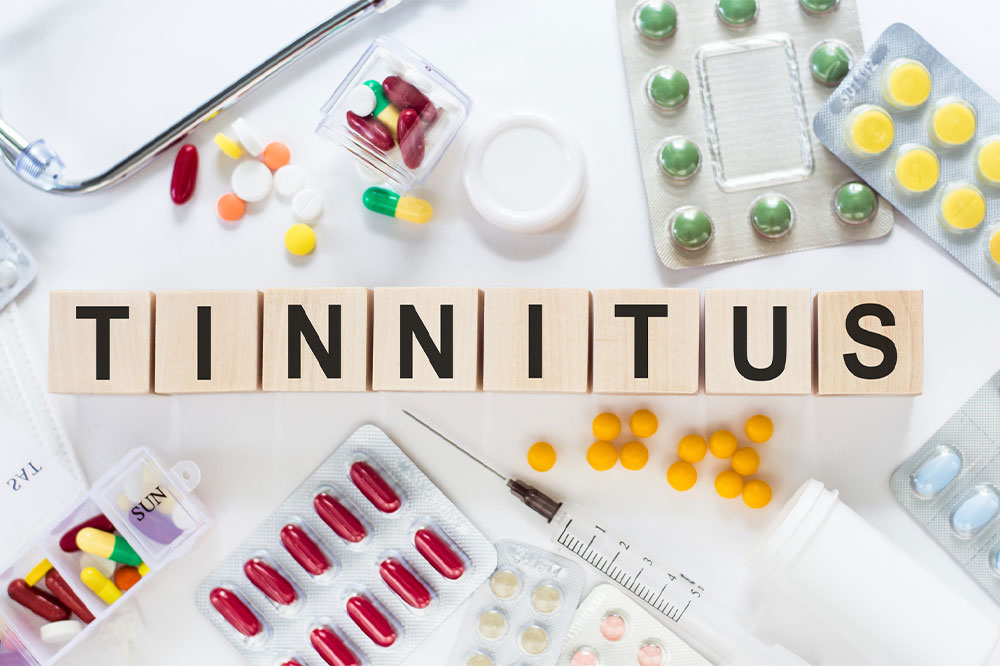Here’s Everything One Should Know About Tinnitus
Tinnitus is an uncomfortable condition that entails a continuous ringing sound in the ears. Nearly 50 million people in the country suffer from tinnitus, and severe cases have an adverse effect on one’s daily life. Such a condition can also be the symptom of a more serious underlying condition. So, before knowing how to cure ringing in the ears, it’s important to understand the causes behind tinnitus as well as its diagnosis and treatment options.
Risk Factors
Although the exact cause of tinnitus can be difficult to assess, these factors can increase the risk of ringing in the ears or worsen it:

- Canal Blockage
A blockage in the ears due to an infection can result in the accumulation of fluid or wax, thereby changing the pressure and causing a ringing sound. Excess accumulation of earwax can also be a cause. - Hearing Loss
The inner ear, i.e., the cochlea, contains minutely delicate hair cells that move on receiving sound waves and trigger electrical signals along the nerve from the ear to the brain. Damage to these cells might leak random electrical impulses. - Injuries
Injuries or accidents affecting the inner ear can cause ringing sounds in either or both ears. Loud explosions and high-pitched sirens are known to injure the eardrum. - Ongoing Treatments
A highly overlooked cause of tinnitus is a treatment that one is undergoing.
Tinnitus Due to Underlying Conditions
A cure for ringing ears usually lies in managing or treating the following underlying conditions that may be causing tinnitus:
- Eustachian Tube Dysfunction
The ears feel full when the tube connecting the middle ear and upper throat expands. - Muscle spasms
Such an issue can also cause the feeling of fullness in the ear due to neurological diseases, thus causing tinnitus. - Meniere’s disease
Those suffering from this disease usually experience ringing in the ears due to abnormal inner fluid pressure. - Blood vessel disorders
Such a disorder results from atherosclerosis that changes blood flow, causing tinnitus or making it more noticeable.
Lifestyle diseases like diabetes, thyroid, migraines, anemia and other autoimmune disorders can cause ringing sounds as a symptom.
Diagnosis
Ringing ears can be cured with the following diagnostic procedures and can be used to assess the exact cause of the condition.
- Loudness Match Test
This test quantifies the loudness level that can be heard by a person potentially experiencing tinnitus. Some may hear objectively loud sounds at a softer level due to the ringing. - Pitch Match Test
Professionals determine one’s approximate audible frequency with this test. Patients try to identify the pitch of their tinnitus by comparing it with other sounds. - Visual Analog Scale
This test determines perceived loudness as a ringing sound. Patients scale loudness intensity on a scale of 0 to 10. Almost 70 percent of all tinnitus patients report a loudness value of six or higher.
Treatment
Most cases of ringing in the ears are cured by treating underlying causes. The following treatments can be used for relief from tinnitus:
- Sound Generators
These devices produce and channel sounds to the ears to mask tinnitus. For instance, the sound generator will deliver soothing sounds of rain and waves. Apart from this use, tinnitus patients can use environmental-enrichment devices like tabletop sound machines that generate soothing background noise. Even playing soothing music on the phone can be a good remedy for ringing in the ears. - Progressive Muscle Relaxation
This treatment is probably the easiest one for addressing tinnitus. Progressive muscle relaxation involves tensing the muscles in the toes and feet for 5 to 10 seconds and slowly releasing them for 30 seconds. This exercise can be done on the legs, hips, lower back, abdomen, shoulders, neck, hands, and even jaw. - Earwax Removal
Some cases of ringing ears can be cured or managed by removing an earwax blockage. Having such cleaning done by a professional is advised as a wax-free ear is not safe to have. - Managing Blood Vessels
A damaged blood vessel in the ear can also be one of the causes of ringing ears. Hence, treating the damaged blood vessel can also eliminate a ringing sound. - Cognitive Behavioral Therapy (CBT)
Ringing ears sometimes have no cure, and the patient may have to look for a lifelong treatment option. A licensed, professional psychologist can help the patient learn coping techniques to make tinnitus more bearable in daily lives. One-on-one or group counseling sessions can also help cope with challenges faced due to tinnitus.
Further research is underway for a more effective ringing ears cure that involves magnetic and electrical stimulation of the brain to help relieve the tinnitus symptoms. Some treatment options for other health conditions can cause ringing ears as a side effect. Hence, discussing alternatives to cope with such side effects is important.

